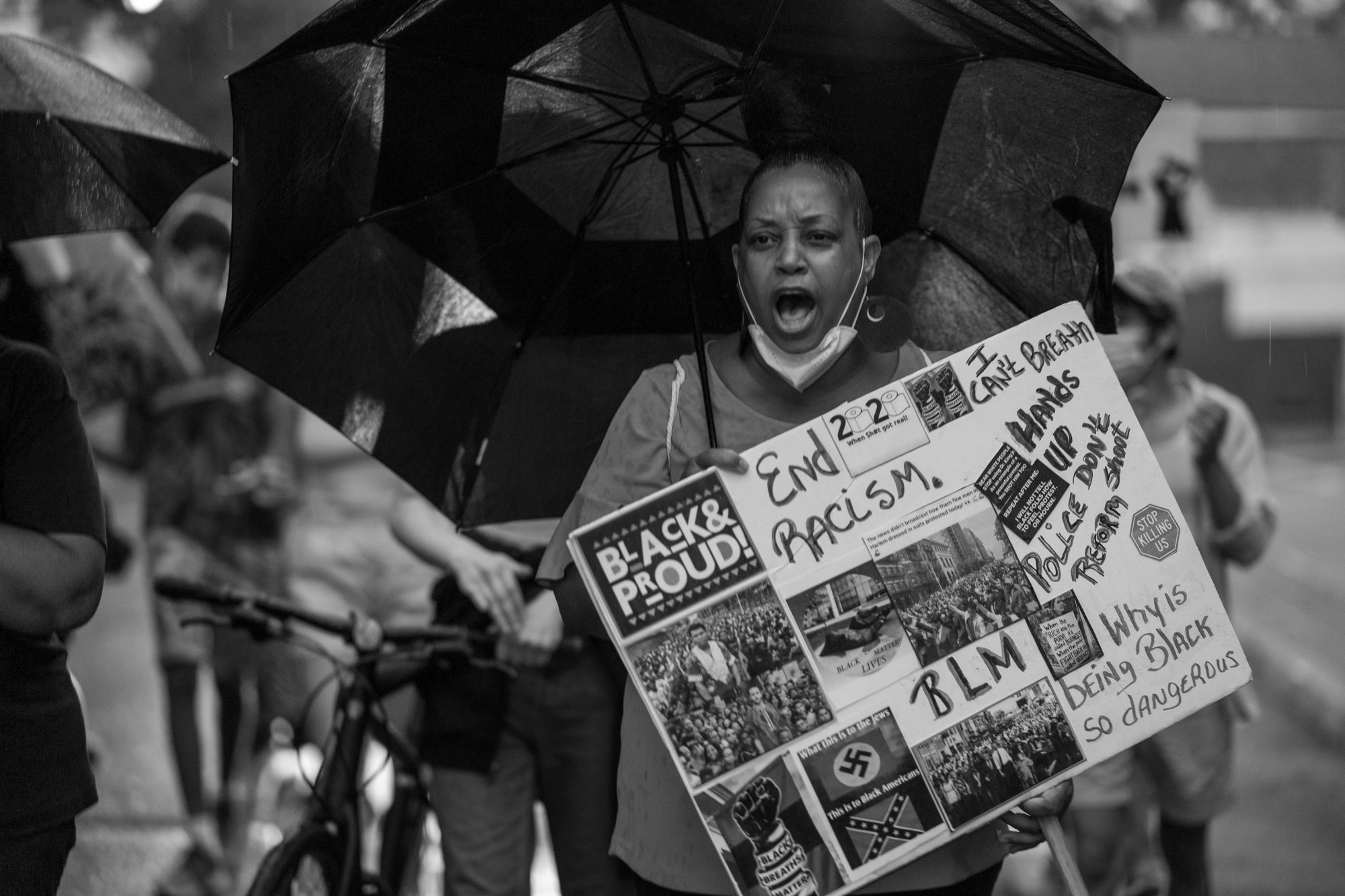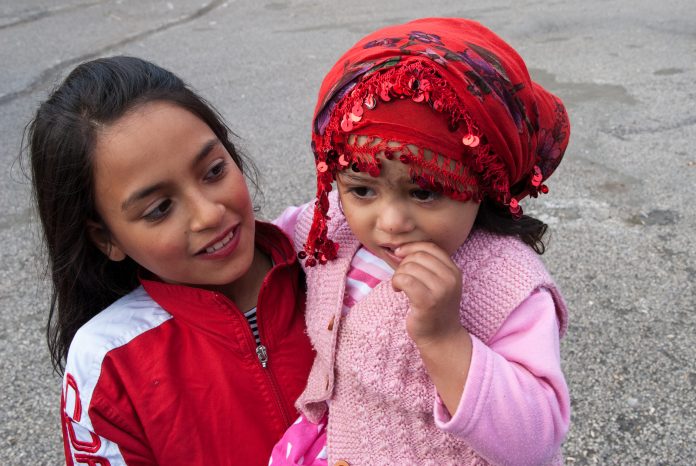Sarah Coolican, Project Coordinator, explains how the new Racism and International Politics programme at LSE IDEAS hopes to facilitate urgent, ongoing conversations of global racial disparity
Experiencing racism and discrimination has shown to have a strong association with thoughts of suicide in black youth and adults, just as studies have found that Roma values and spirituality can make them reluctant to use public healthcare systems. And yet these issues remain unchanged and disparity levels between these groups and white populations continue to grow. The year 2020 has been a time of unprecedented devastation and change, and the COVID-19 pandemic has exposed the degree to which long-standing racism and racial inequality are as deeply rooted as ever. LSE’s motto, ‘Understanding the causes of things’, is exactly what this new programme at LSE IDEAS seeks to do. Understanding the systems and processes which sustain global inequality and racial injustice will push us all to ask more questions and seek solutions.
Well needed discussions against institutional and systemic racism is continuing in countries around the world, including the UK. This project, Racism and International Politics, is not a reactive gesture in light of recent events, nor is this LSE IDEAS seeking to structurally impose a syllabus, or tick a box to show it has taken action.
This is a programme intending to open dialogues on systemic inequality and racial injustice, and provide a platform for academics and activists around the world on underdiscussed topics. This programme will be a space for constructive discussion and the publication of strategic policy updates.
Why do anti-racism projects like this matter?
Racism is found on every continent and in every society, whether it is Chinese discrimination against Uighurs or South African discrimination against Zimbabwean migrant workers. Whether it is the continued hate speech directed at the Roma populations across Europe, or the persecution of Christians in the Middle East. Politics can often fuel the divisive rhetoric of racism, and so must be actively countered if we are to find social cohesion.
The persecution of the Romani peoples
The persecution of Romani peoples within the borders of the EU is not new – however, it remains a largely unknown situation. What this programme has actively avoided in the discussion of these topics, especially in our inaugural event on The EU and its failing policies towards its Roma population, is stereotypical representations of poverty and injustice. Whilst the active exclusion of Romani peoples from education, healthcare services and basic human rights is vital to highlight, there is a wealth of positive aspects and extraordinary attributes to this community that need to be showcased.
Highlighting first-hand accounts, not imposed ideas
This programme helped provide another platform to MEP Romeo Franz, first Sinto from Germany elected in the European Parliament, and hear his first-hand accounts of life in this community. But this also allowed us to hear his dedicated activism as Vice Chair on the Culture and Education Committee, his invaluable role in formatting the Roma Inclusion Strategy, and hear the unrivalled cultural and architectural significance the Roma community has had on the European landscape. Our future events will continue in this regard, bringing to light hard to discuss topics, uncovering racial inequality and systemic discrimination, but also focusing on what unites us and the indispensable importance of embracing different cultures and values.
As an academic institution, it is LSE’s duty to acknowledge the centrality of racism in International Relations theory. Whether that be embedded in the IR traditions of liberalism and realism, or infused in the constructs of anarchy and democratic peace claims. Part of the drive to change this inherent Western centricity within IR paradigms involves critically interrogating the theories that have created the modern global order. Our event in the spring of 2021 with Professor Amitav Acharya seeks to do just this, whilst encouraging students of all levels to investigate further and ask harder questions.
All are welcome in this programme
There has been much discussion over these last months concerning who should be at the forefront of leading this discussion, and whether those who have not personally felt these racial injustices are qualified to educate others on such evils.
This programme, and LSE IDEAS as a whole, has been no exception to this justified scrutiny. In light of this discussion, I say that this programme is merely a mouthpiece for experts, activists, and scholars on very underdiscussed issues. This space is designed to showcase their knowledge and personal experiences in order to educate others, initiate and sustain conversation. As a Project Coordinator, it is my role to facilitate this project and help the events run. The topics and subject matter, however, are in fact decided and entirely led by the experts and speakers who are leaders in their respective fields.
Topics such as systemic racism are difficult to discuss, and often spark emotions from different people in many different ways. However, this is a learning process and an academic development which everybody can be a part of.
Whether it be in helping to logistically set up these free and public events, or simply attend and ask a question. Whether it be to write your thoughts on strategic policy developments for us to publish, or merely listen to our podcasts and self-reflect. You do not have to be an expert on the topic to participate in the discussion. That is exactly what this programme, and academic institutions, should aim to promote as we develop from this fractured moment in time to a more inclusive International Politics community.
Future aims of the International Politics programme
Any actions or policies should not be limited to responding to a single event, like the killing of George Floyd in May this year, but should be embedded into how we work all of the time. This programme cannot make the widespread change needed to begin tackling this global problem. For example, changes to syllabuses are needed to include a diverse range of theorists and subject matter.

Similarly, funding and opportunities need to be expanded to underrepresented ethnicities in both academia and higher education. This programme cannot do this. What it can do, however, is open up the conversation, having Dr Chris Nshimbi, a Senior Lecturer at the University of Pretoria, speak on his personal experiences of South African xenophobia towards the Zimbabwean diaspora. Or, Dr Yoon Park, the Associate Director of the China-Africa Research Initiative, evidence how the Chinese Belt and Road Initiative in Africa has created a ‘two-way Racist mirror’. Or, Professor Amitav Acharya and MEP Romeo Franz, share their invaluable knowledge and wealth of personal experiences on differing subjects pertaining to racism in politics and academia.
Replacing performativity with meaningful action
LSE IDEAS is the world’s leading University affiliated think-tank, and our aim is to connect academic knowledge and make issues of strategic importance accessible to all. Alongside this project, we are commissioning a series of strategic updates which will seek to provide policy prescriptions for governments who face these issues of systemic racism. This is not another showcase of academics ticking diversity boxes. It is a facilitated, constructive discussion in the form of a webinar series, with active participation from the audience and questions encouraged. Combative confrontation is not how we will progress on this issue, and the process of learning from one another is vital for us to move towards a fairer and more inclusive society.
Whilst some events have already taken place, we welcome suggestions from all, whether that be on a topic for a webinar, or a strategic update on a topical issue of racism with proposed solutions. We hope that this new series will help IDEAS make its own contribution to an urgent and ongoing conversation.
For a list of all events and podcasts, please visit the LSE IDEAS programme page for Racism and International Politics.











